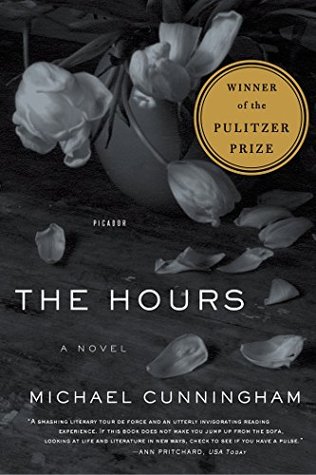More on this book
Community
Kindle Notes & Highlights
Still, this indiscriminate love feels entirely serious to her, as if everything in the world is part of a vast, inscrutable intention and everything in the world has its own secret name, a name that cannot be conveyed in language but is simply the sight and feel of the thing itself.
Still, she loves the world for being rude and indestructible, and she knows other people must love it too, poor as well as rich, though no one speaks specifically of the reasons. Why else do we struggle to go on living, no matter how compromised, no matter how harmed?
Carrouthers Prize.”
These days, Clarissa believes, you measure people first by their kindness and their capacity for devotion. You get tired, sometimes, of wit and intellect; everybody’s little display of genius.
Clarissa’s father, gentle almost to the point of translucence, loved seeing women in little black dresses. Her father grew exhausted; he gave up his cogency the way he often gave up arguments, simply because it was easier to agree.
Barbara offers a blank expression that Clarissa understands is meant as a smile. Barbara is forty or so, a pale, ample woman who came to New York to sing opera. Something about her face—the square jaw or the stern, inexpressive eyes—reminds you that people looked essentially the same a hundred years ago.
the work is waiting for her and she is anxious to join it the way she might join a party that had already started downstairs, a party full of wit and beauty certainly but full, too, of something finer than wit or beauty; something mysterious and golden; a spark of profound celebration, of life itself, as silks rustle across polished floors and secrets are whispered under the music.
the frown of a deity, all-seeing and weary, hoping for the best from humankind, knowing just how much to expect.
She can feel it inside her, an all but indescribable second self, or rather a parallel, purer self. If she were religious, she would call it the soul. It is more than the sum of her intellect and her emotions, more than the sum of her experiences, though it runs like veins of brilliant metal through all three. It is an inner faculty that recognizes the animating mysteries of the world because it is made of the same substance, and when she is very fortunate she is able to write directly through that faculty.
It is almost perfect, it is almost enough, to be a young mother in a yellow kitchen touching her thick, dark hair, pregnant with another child. There are leaf shadows on the curtains; there is fresh coffee.
Clarissa, at fifty-two, knows that behind these doors and down these alleys lies nothing more or less than people living their lives.
At each of the four landings a window offers a different view of laundry hanging from lines: flowered sheets, baby clothes, sweatpants; lurid in their inexpensive newness; not at all the sort of old-fashioned laundry—dark socks and elaborate women’s underwear, faded house-dresses, luminous white shirts—that would make the air shaft feel like something ordinary but marvelous, preserved from another time.
He says, “Here we are. Don’t you think?” “Pardon me?” “We’re middle-aged and we’re young lovers standing beside a pond. We’re everything, all at once. Isn’t it remarkable?” “Yes.”
Maybe there is nothing, ever, that can equal the recollection of having been young together.
There is still that singular perfection, and it’s perfect in part because it seemed, at the time, so clearly to promise more. Now she knows: That was the moment, right then. There has been no other.
Clarissa, she thinks, is not the bride of death after all. Clarissa is the bed in which the bride is laid.
Clarissa thinks of a little girl dragging home a stray dog, all ribs and discolored teeth; a pathetic and ultimately dangerous creature who ostensibly needs a good home but whose hunger in fact runs so deep it cannot be touched by any display of love or bounty. The dog will just keep eating and eating. It will never be satisfied; it will never be tame.
Virginia Woolf: A Biography by Quentin Bell,
Virginia Woolf by Hermione Lee.
Virginia Woolf: The Impact of Childhood Sexual Abuse on Her Life and Wo...
This highlight has been truncated due to consecutive passage length restrictions.
Virginia Woolf by Ja...
This highlight has been truncated due to consecutive passage length restrictions.
Selected Letters of Vanessa Bell edited by...
This highlight has been truncated due to consecutive passage length restrictions.
Woman of Letters: A Life of Virginia Woolf b...
This highlight has been truncated due to consecutive passage length restrictions.
A Marriage of True Minds: An Intimate Portrait of Leonard and Virginia Woolf by Georg...
This highlight has been truncated due to consecutive passage length restrictions.
Beginning Again: An Autobiography of the Years 1911 to 1918 and Downhill All the Way: An Autobiography of the Year...
This highlight has been truncated due to consecutive passage length restrictions.
A chapter on Mrs. Dalloway in Joseph Boone’s book Libidinal Currents: Sexuality and...
This highlight has been truncated due to consecutive passage length restrictions.
an article by Janet Malcolm, “A House of One’s Own,” which appeared in T...
This highlight has been truncated due to consecutive passage length restrictions.
I also learned a great deal from the introductions to various editions of Mrs. Dalloway: Maureen Howard’s in the Harcourt Brace & Co. edition, Elaine Showalter’s in th...
This highlight has been truncated due to consecutive passage length restrictions.


